1. 2024: The Main Topics in Russian Civil Society

A Red Square rally-concert in Moscow dedicated to the tenth anniversary of the reunification of Crimea with Russia. March 18, 2024. Kirill Zykov / RIA Novosti
Russian civil society is a complex and multifaceted social phenomenon that emerges at the intersection of the interests of the state, society, and numerous individual citizens. At its core, civil society is defined by its institutions. Varied in their forms, these institutions organize, thematize, and direct civil society’s activities, positioning it as an active agent of social action in its interactions with other spheres of social relations, primarily with its main regulatory political institution — the state.
Over the past few years, the Civic Chamber of the Russian Federation has documented a gradual expansion of dialog between the state and civil society across the broadest spectrum of topics and areas. The year 2024 has not been an exception, with its primary trend being the further enhancement of the involvement of public institutions in addressing pressing socioeconomic challenges.
Today, public institutions, alongside the state, are engaged in essential work aimed at ensuring social cohesion and stability within Russian society, serving as effective platforms for expressing and advancing the interests of various groups of citizens in our country.
This is facilitated by the regular meetings between the President of Russia and representatives of public organizations, which not only allow for discussions regarding the most significant initiatives of citizens, consolidated by civil society institutions, but also send a crucial public signal from the Head of State to governing bodies at all levels regarding the necessity for continued progressive development of state-society interaction.
The Annual Report on the State of Civil Society, presented for your consideration, does not purport to be a scientific study designed to answer fundamental questions about societal development; rather, it documents and analyzes the most relevant trends in the advancement of civil society in the current year—those areas and changes that have been observed, analyzed, and which the Civic Chamber of the Russian Federation has participated in directly, as one of the key public institutions in our country.
Civil society in sociological dimension
Modern civil society is experiencing dynamic development and evolution. Social structures, institutions, values, norms, and ideas are transforming, which directly reflects on citizen behavior and their evaluation of unfolding events. For the Civic Chamber of the Russian Federation, much like other public institutions, the results of sociological research documenting societal changes serve as critical benchmarks. These findings enable not only the identification and analysis of citizens’ opinions and attitudes regarding various matters that pertain to their lives and the broader societal context but also the determination of the expectations and demands they place on the civil society institutions and the state itself.
Assessment of the Activities of Public Institutions
According to the monthly surveys conducted by the Russian Public Opinion Research Center (VCIOM), the overall structure of institutional evaluations regarding the activities of public institutions among Russian citizens has remained virtually unchanged from 2020 to 2024. The Armed Forces rank as the most approved public institution, with support from 73.5% to 83.5% of respondents at various measurement points over the past four years.
A nationwide survey conducted in 2024 by the Center for Civil Society and Nonprofit Sector Research at HSE University1 revealed that a total of 52% of Russians are aware of the functions of the Civic Chamber of the Russian Federation. Among those familiar with the activities of the Civic Chamber, 59% tend to trust it, while 41% are inclined to distrust it.
Among the citizens informed about the operations of the Civic Chamber of Russia, neither the level of trust nor the evaluations of its effectiveness have changed markedly compared to 2023. However, a predominantly positive trend can be observed over the last five years, indicating an increase in public trust towards the Civic Chamber of Russia, rising from 40% in 2020 to 59% in 2023-2024.
The level of trust among citizens in the Civic Chamber of Russia has risen from 40% to 59% between 2020 and 2023–2024.
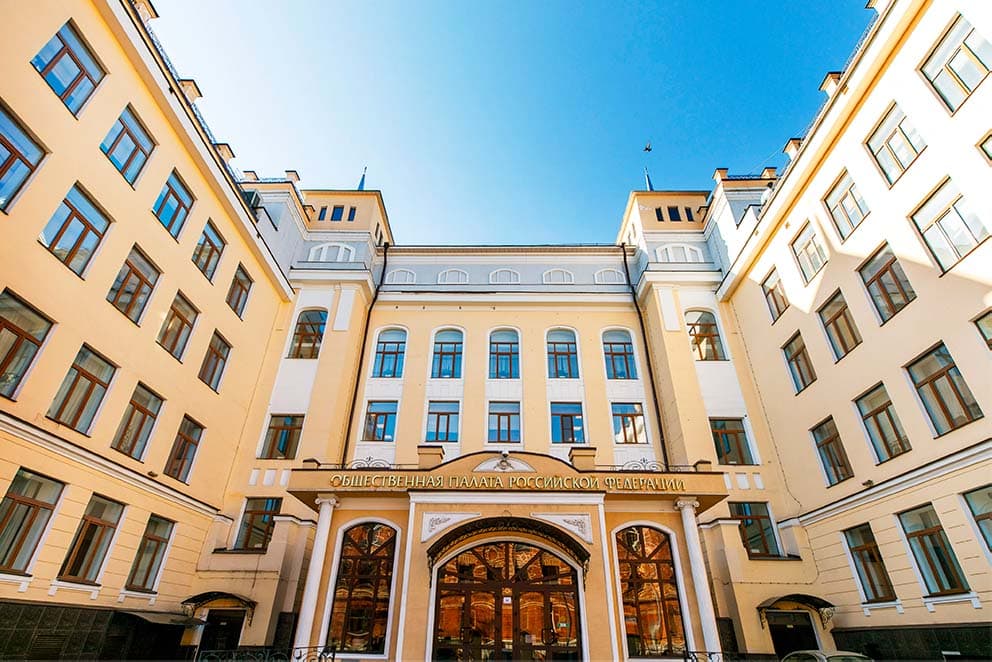
Since its establishment in 2005, the Civic Chamber of Russia has been housed in a building located at: Moscow, Miusskaya Street, 7, Building 1. This building is recognized as a historically significant urban landmark, with a history spanning over 100 years
Assessment of the activities of public institutions2
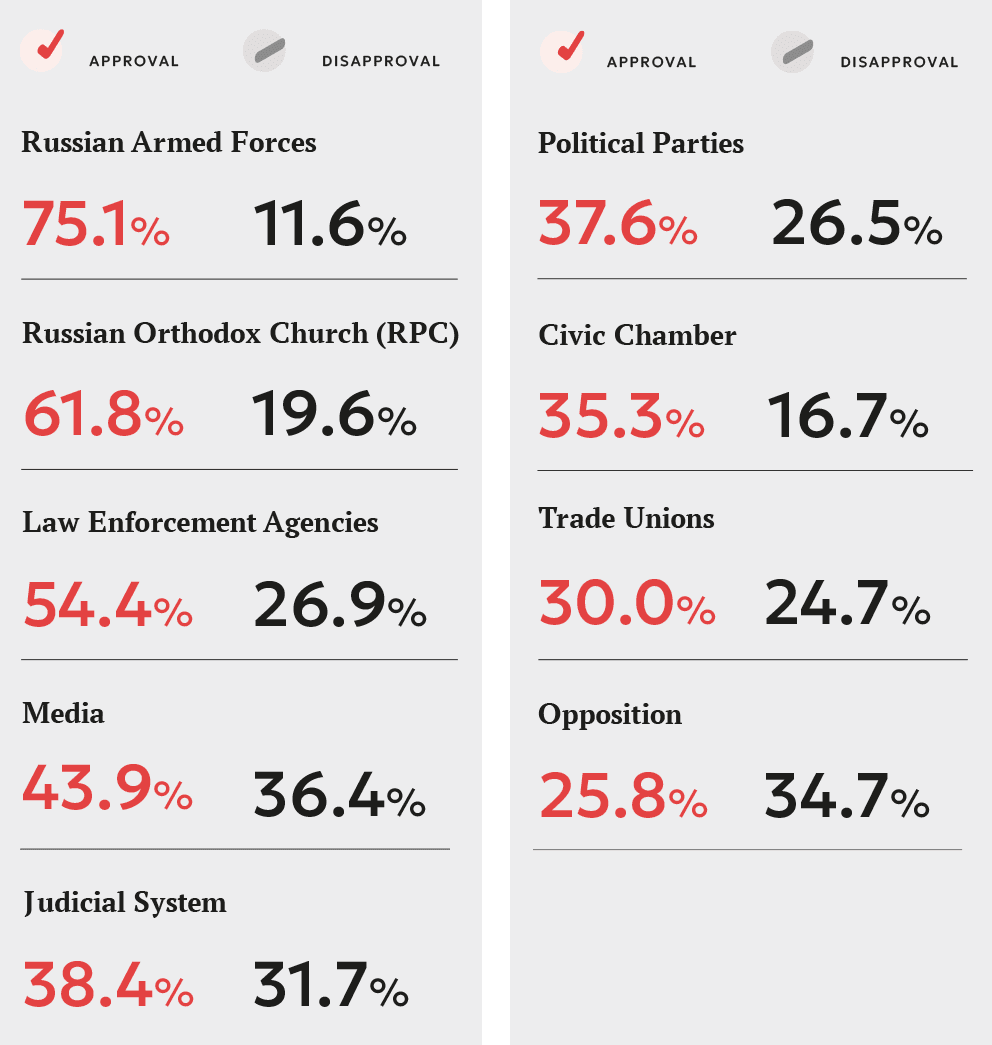
DYNAMICS OF CITIZEN TRUST IN THE ACTIVITIES OF THE CIVIC CHAMBER IN 2020–2024 (HSE UNIVERSITY)
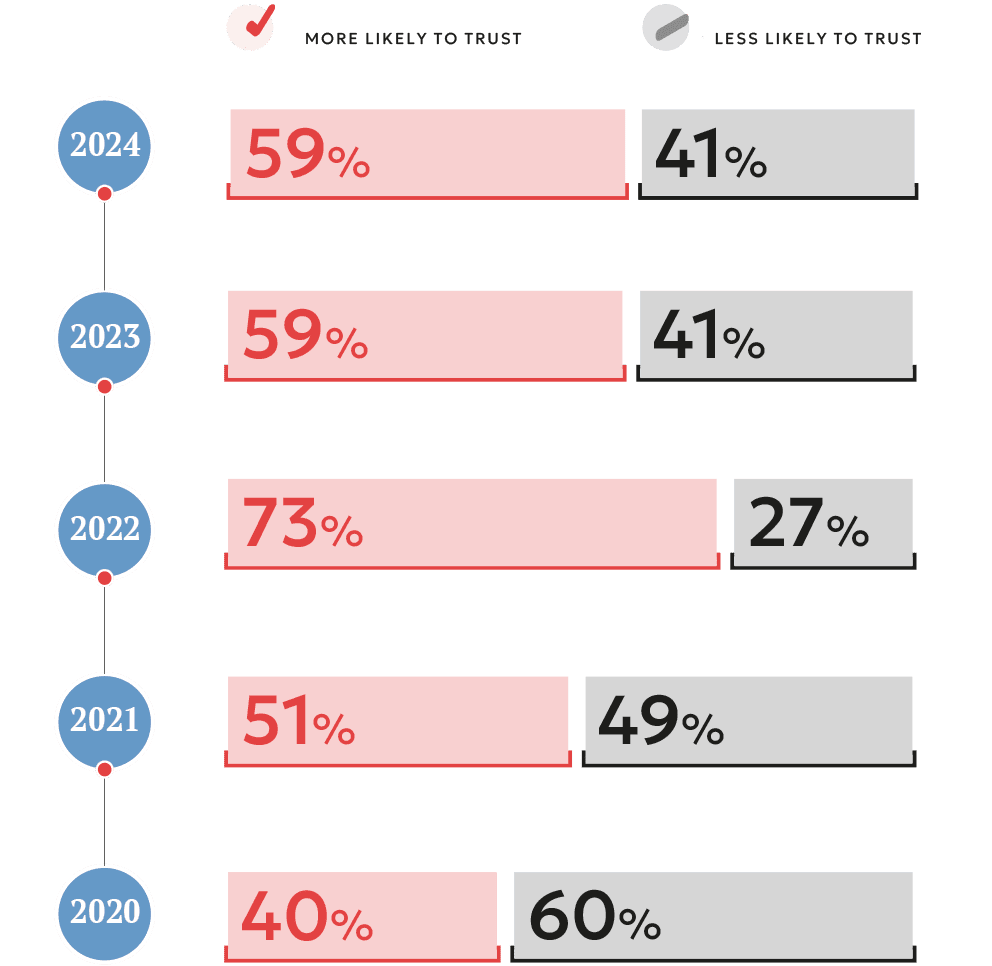
Sociological dynamics of citizen reactions to social changes
SOCIAL WELL-BEING (VCIOM)3
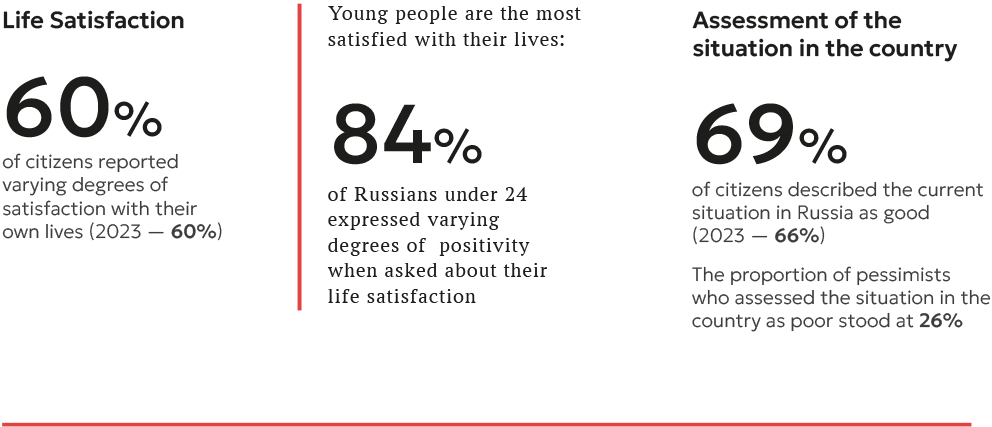
MODELS OF SOCIAL JUSTICE DEMANDED BY RUSSIAN SOCIETY IN 2024
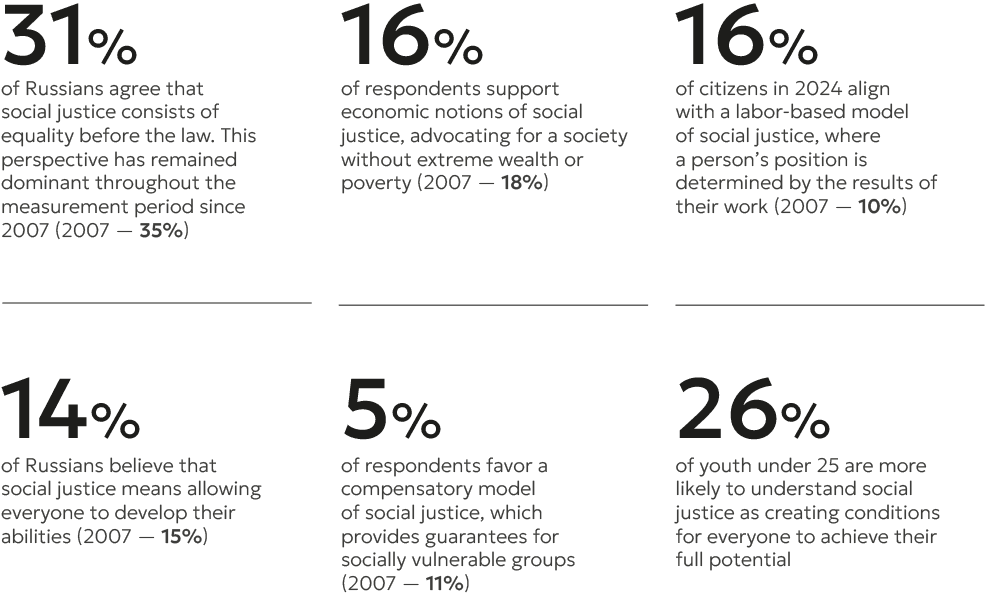
SOCIAL JUSTICE AS DEFINED BY RUSSIANS (VCIOM)4
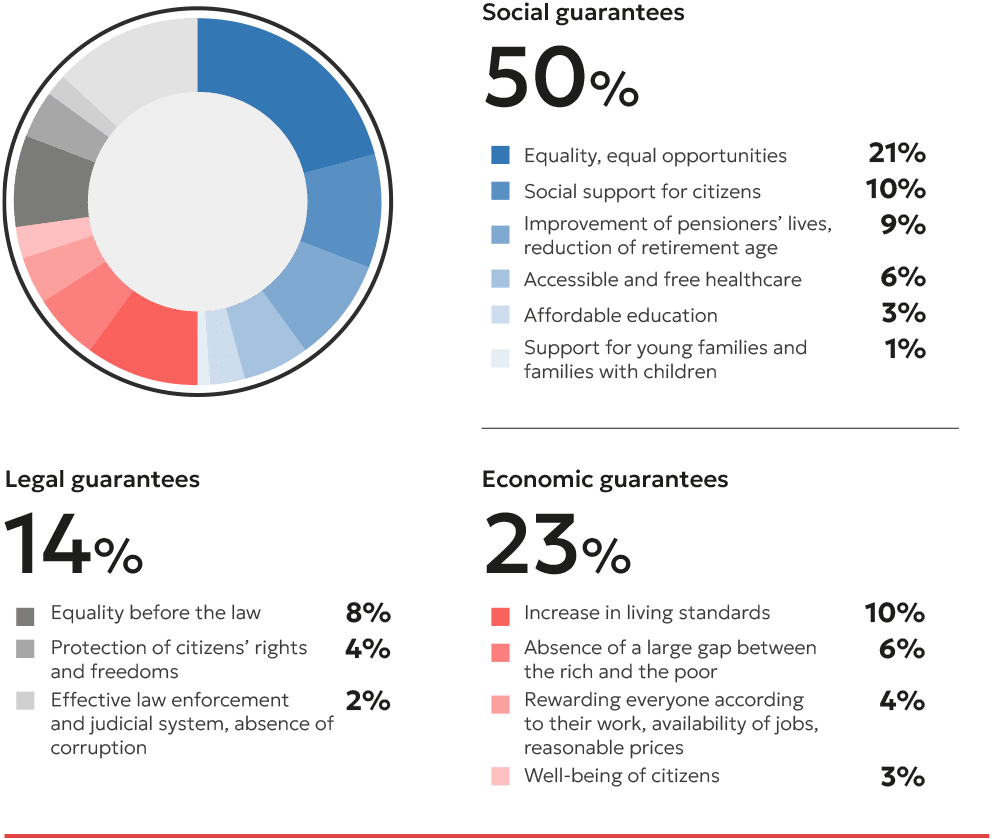
HOW MUCH HAS SOCIAL JUSTICE IN OUR SOCIETY IMPROVED OVER THE PAST YEAR?

PUBLIC TRUST (VCIOM)5
Public trust is one of the most important resources for the development of society, fostering the creation of stable social connections that enable people to collaborate, exchange ideas, and collectively solve problems. A survey conducted by VCIOM in August 2024 revealed that there is a prevailing opinion in Russian society that caution should be exercised in interactions with others.
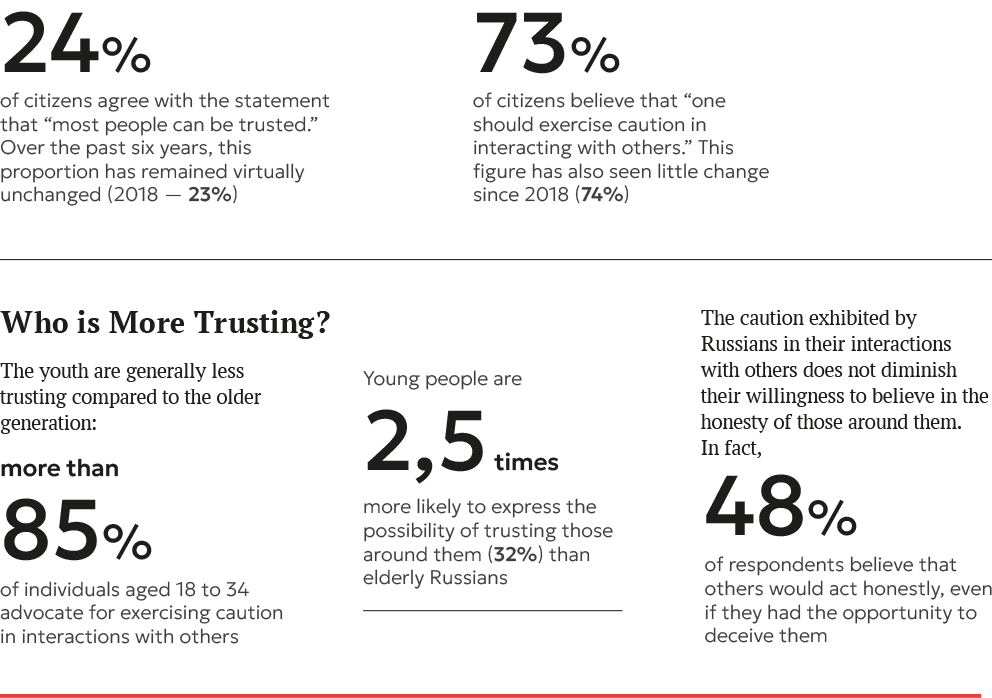
WILLINGNESS TO HELP (HSE UNIVERSITY)
Approximately half of respondents (47%) believe that there is often a willingness among people to help one another. In contrast, 42% feel that this willingness is rarely encountered, and only 8% assert that it is completely absent.
Exactly half of the respondents (50%) believe that the willingness to help within society has increased over the past year. Furthermore, 28% feel that this willingness has remained stable, while just 15% claim that it has decreased.
In your opinion, how often do you encounter a willingness to help one another among the people around you today?
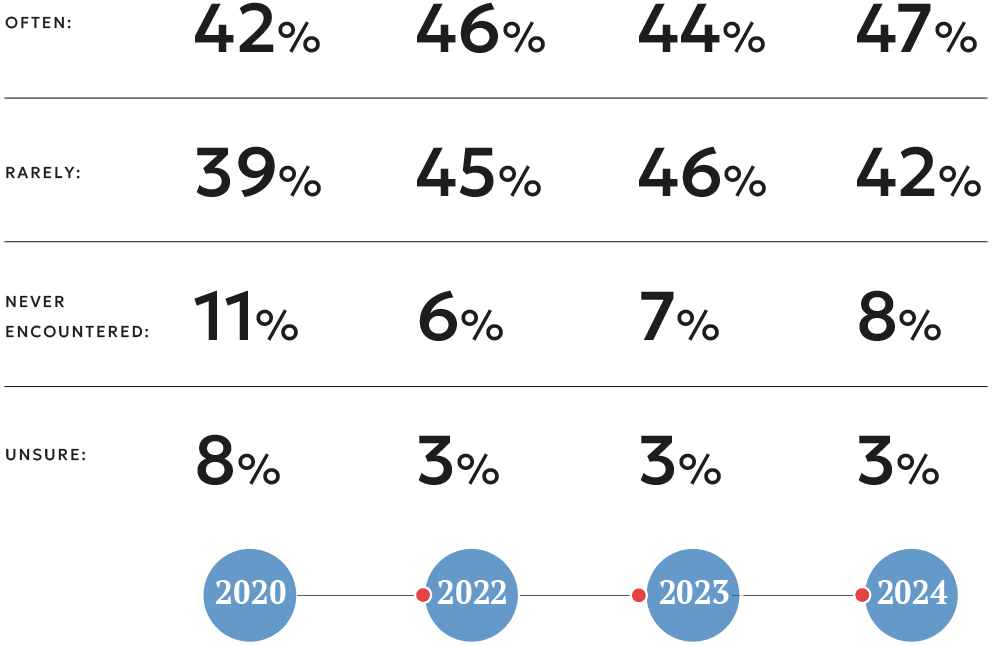
The readiness to help those around them is more noticeable among:
-
Young adults aged 18 to 30 (54%, compared to 47% in the overall sample); Individuals with higher education degrees (57%) and residents of cities with populations exceeding one million (53%);
-
Those who have engaged in volunteer activities in the past year (59% versus 40% among nonparticipants), as well as those who are either willing to offer support or have already provided assistance to military personnel or their families (both at 52%);
-
Individuals who believe that the country is moving in a distinctly positive direction (55%);
-
Those who take pride in their citizenship (53%);
-
Individuals who consider themselves to be unquestionably happy (56%).
HELP FOR STRANGERS IN NEED (HSE UNIVERSITY)
Over the past year, 71% of Russians have provided monetary assistance to strangers in need without expecting anything in return, 69% have donated goods, and 75% have offered assistance through actions or deeds. Consequently, 90% of Russians have participated in at least one of these types of aid.
In 2024, the Center for Civil Society and Nonprofit Sector Research at HSE University recorded the highest level of public involvement in providing help through money, goods, and deeds since the commencement of observations in 2017.
The proportion of those who have assisted strangers in need through:
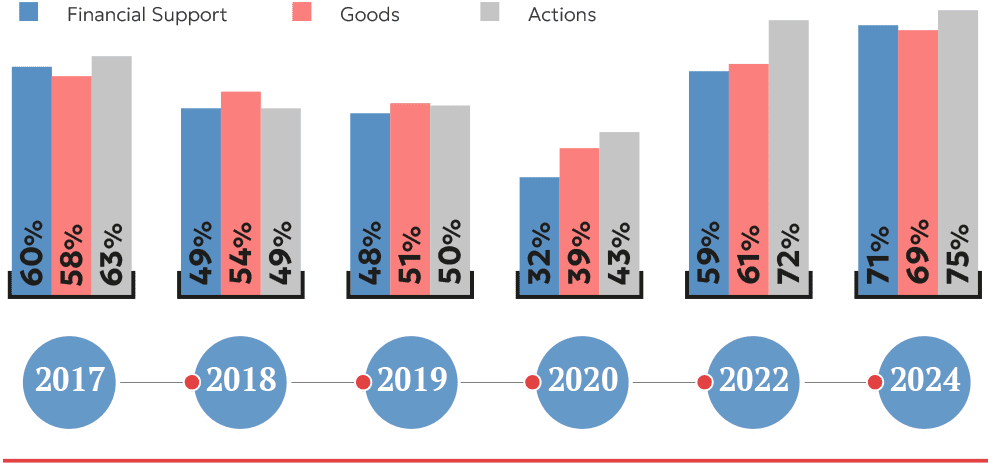
SUPPORT FOR MILITARY PERSONNEL ON SPECIAL MILITARY OPERATION AND THEIR FAMILIES (HSE UNIVERSITY)
69% of Russians express their willingness to help the families of military personnel, as well as the servicemen themselves involved in special military operation. This percentage has remained relatively stable compared to 2023, when it was 71%.
Overall, more than half of Russians (56%) have already provided assistance to military personnel or their families during the special military operation. This proportion has not changed since 2023.
Most often, respondents contributed by donating money (28%), offering emotional support and sympathy (24%), providing goods at no cost (23%), or giving food (21%). Additionally, 11% of respondents helped with daily tasks and offered professional consultations.
How are you willing to provide assistance? Have you ever assisted military personnel involved in special military operation or their families? If so, how did you help?
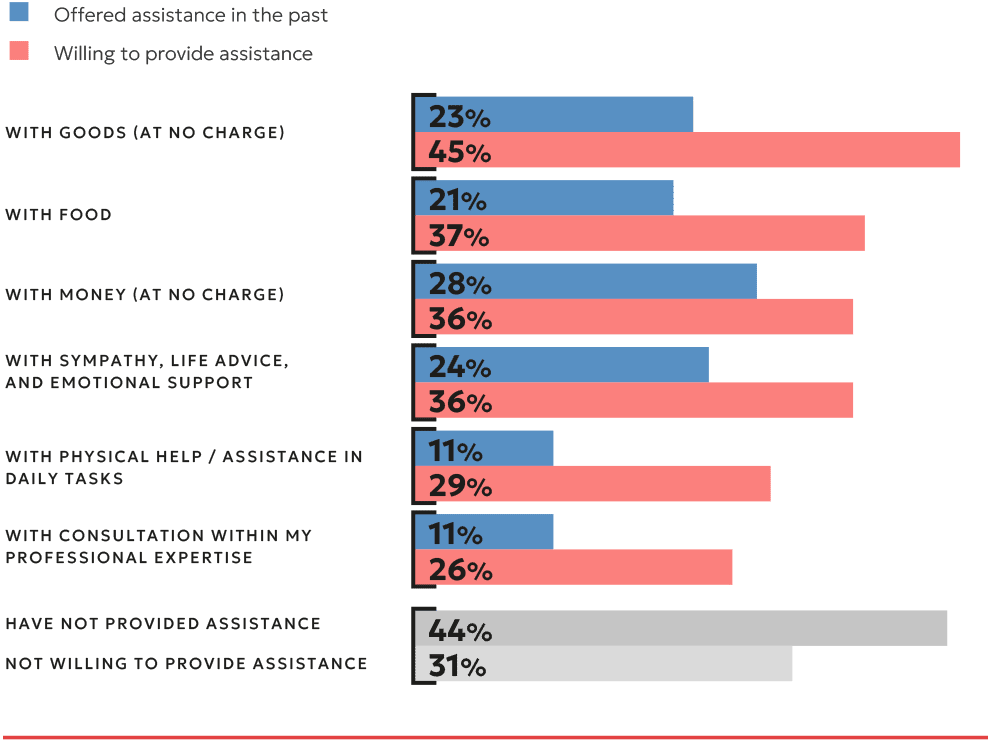
The groups that most frequently provided assistance included:
-
Civil servants, with 70% compared to 56% in the general sample, and employees of publicly-funded organizations (65%);
-
Individuals who perceive that a willingness to help is commonly encountered in society (62%), or who believe this willingness has grown over the past year (63%);
-
Volunteers (70%);
-
Those who believe the country is on the right developmental path and who express pride in their citizenship (63%);
-
People who have relatives and/or friends in the special military operation (SMO) zone, with 65% as opposed to 32% among those without such connections.
Enhancing efficiency and transparency in public institutions through ranking assessments
Ranking assessments serve as a crucial process for evaluating, comparing, and ranking entities based on specific criteria. This process helps in identifying strengths and weaknesses, stimulates growth, and supports the formulation of effective improvement strategies for the entities evaluated.
Since 2020, the Civic Chamber of the Russian Federation, in partnership with the ranking agency RAEX, has executed several ranking studies focused on the public sector. Regular discussions on ranking methodologies are hosted by the Civic Chamber of Russia, allowing all stakeholders to contribute comments and suggestions for refining the processes.
Regional ranking of the third sector: “Region-NPO”
The annual “Region-NPO” ranking, initiated in 2020, has emerged as a pivotal research effort led by the Civic Chamber of Russia, facilitating a comprehensive evaluation of dynamic developments within the third sector across Russian regions.
Before 2020, a standardized tool for comparative assessment of the development level and quality of nonprofit sectors within the Russian Federation’s constituent entities did not exist. The “Region-NPO” ranking now offers a well-founded evaluation of regional disparities in the development of the third sector. It has also become a potent instrument for driving real transformation at both the regional and federal levels, providing strategic guidance for the multifaceted Russian nonprofit sector’s progressive growth.
Following each release of the “Region-NPO” ranking, regions receive detailed standings with thorough breakdowns of the supporting data.
Twenty-eight regions in the Russian Federation, typically represented by collaborative teams from regional administrations, civic chambers, and nonprofit organizations, effectively partner with the Civic Chamber of Russia in leveraging the ranking’s analytics to develop the third sector. Many regions have seen significant advancements in their standings: the largest five-year jump was 55 places, with an average increase of over 10 places in the rankings. These improvements reflect tangible achievements, such as substantial growth in social services offered to the population, an increase in volunteers engaged with socially-oriented NPOs, and a steady rise in donations, among other metrics.
In the 2024 ranking period, the nonprofit sectors of Russia’s new regions — Donetsk People’s Republic, Lugansk People’s Republic, Zaporozhye region, and Kherson region — were analyzed for the first time. While a lack of data on many metrics limited the complete application of the ranking methodology for a comprehensive evaluation, several promising factors and indicators were observed. These suggest systematic efforts by these four new subjects of the Russian Federation to develop their nonprofit sectors.
The ranking methodology employs 23 objective information sources to evaluate the nonprofit sector across eight ranking factors and 54 indicators within the regions. In total, 170 metrics (initial values) are assessed to calculate the ranking indicators.
REGIONAL RANKING OF THE THIRD SECTOR “REGION-NPO”
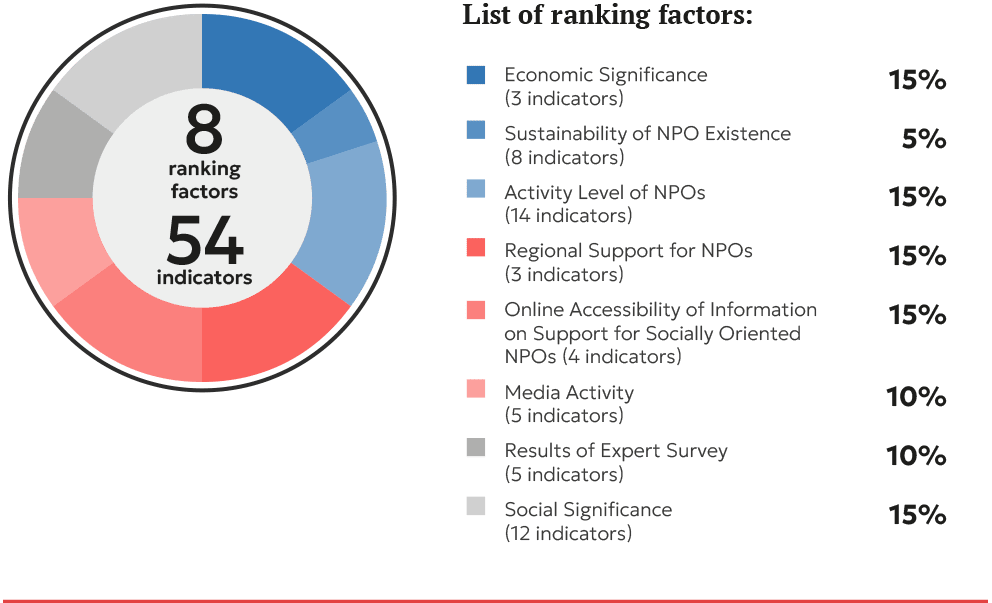
Results of the regional ranking of the third sector “Region-NPO” for 2024 (Top 10 regions of Russia):
№
Region
Scores
1
Moscow
62.969
2
Republic of Tatarstan
59.661
3
Nizhny Novgorod Region
57.777
4.
Samara Region
57.395
5
Chelyabinsk Region
54.824
6
Khanty-Mansi Autonomous Okrug — Yugra
54.796
7
Belgorod Region
53.326
8
Arkhangelsk Region
53.291
9
Leningrad Region
52.493
10
Sverdlovsk Region
52.407
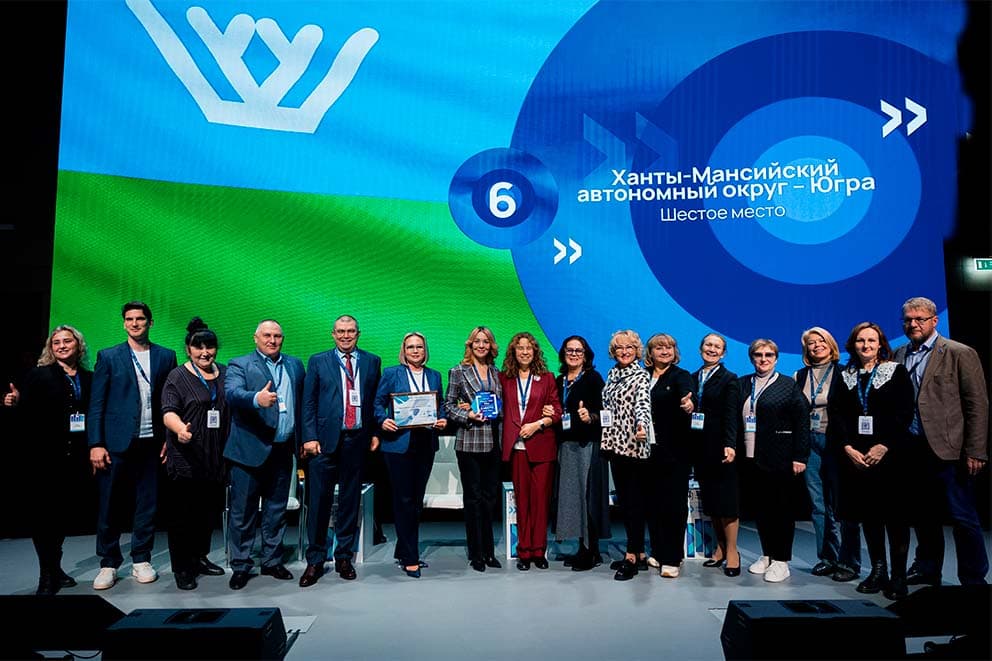
Award ceremony for regional leaders in the “Region-NPO” ranking at the final “Community” forum in Moscow. November 2, 2024. Press Service of the Civic Chamber of the Russian Federation
In several key indicators of the “Region-NPO” ranking, new regions have successfully secured top positions:
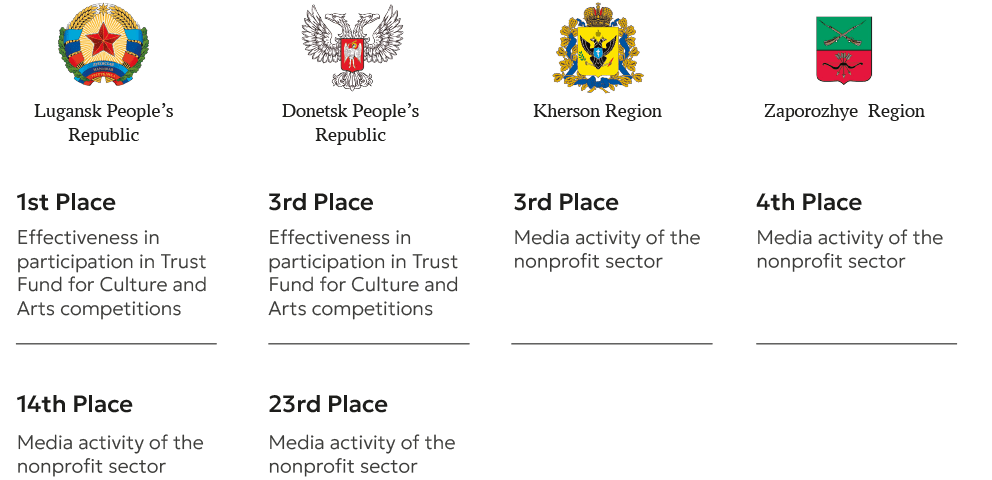
Top 5 most dynamic regions (with an increase of over 35 positions in 5 years)
Region
Position
in 2024
Growth in 2024 Ranking
Growth in Ranking over
4 Years
Nizhny Novgorod Region
3
↑ +4
↑ +55
Krasnodar Krai
28
↑ +52
Orenburg Region
31
↑ +9
↑ +44
Novgorod Region
21
↑ +9
↑ +42
Leningrad Region
9
↑ +13
↑ +39
The “Region-NPO” ranking highlights several positive developments within the nonprofit sector
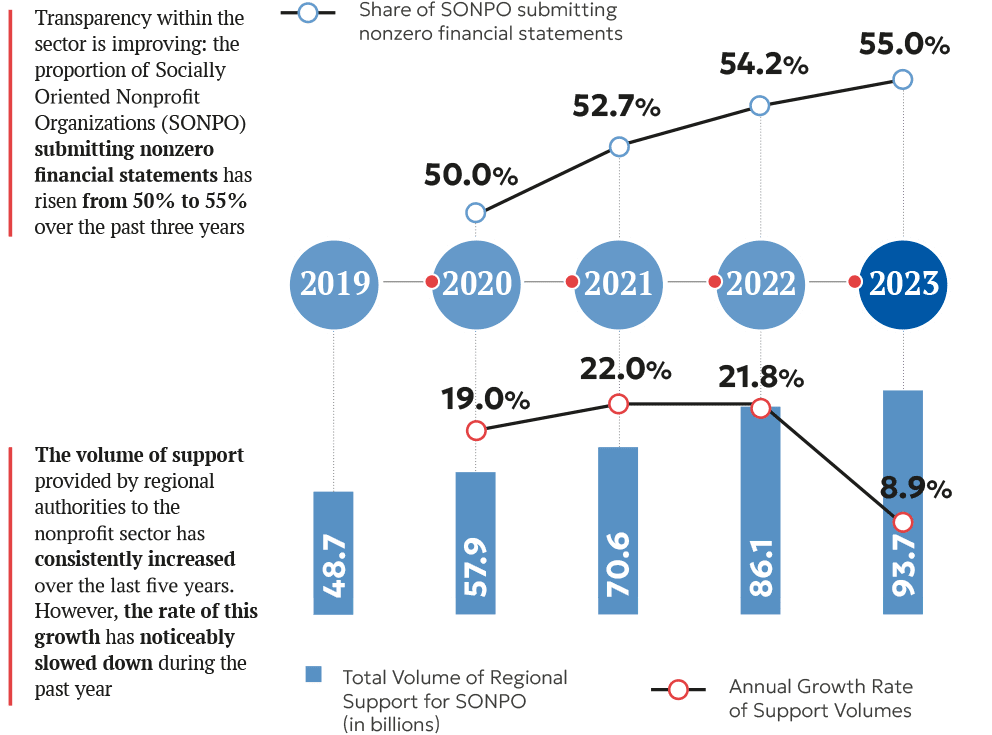
Ranking of regional civic chambers
The launch of the ranking of civic chambers for the subjects of the Russian Federation in 2020 aimed to assist these regional chambers in objectively evaluating their activities. Initially, the ranking of regional civic chambers was presented to the public as a part of the “Region-NPO” ranking. By 2022, due to the unprecedented public interest and expert opinions, which highlighted that the activities of regional civic chambers significantly surpassed merely supporting the nonprofit sector as institutional platforms, it was decided to separate the “Significance of regional civic chambers for SONPO” factor from the “Region-NPO” ranking, establishing it as an independent and standalone ranking.
The annual publication of the research results shows that healthy competition for top positions in the ranking motivates regional civic chambers to enhance the quality of their work. This involves improving mechanisms and increasing the effectiveness of interactions between public institutions and citizens, government bodies at various levels, and the expert and professional communities.
RANKING OF REGIONAL CIVIC CHAMBERS
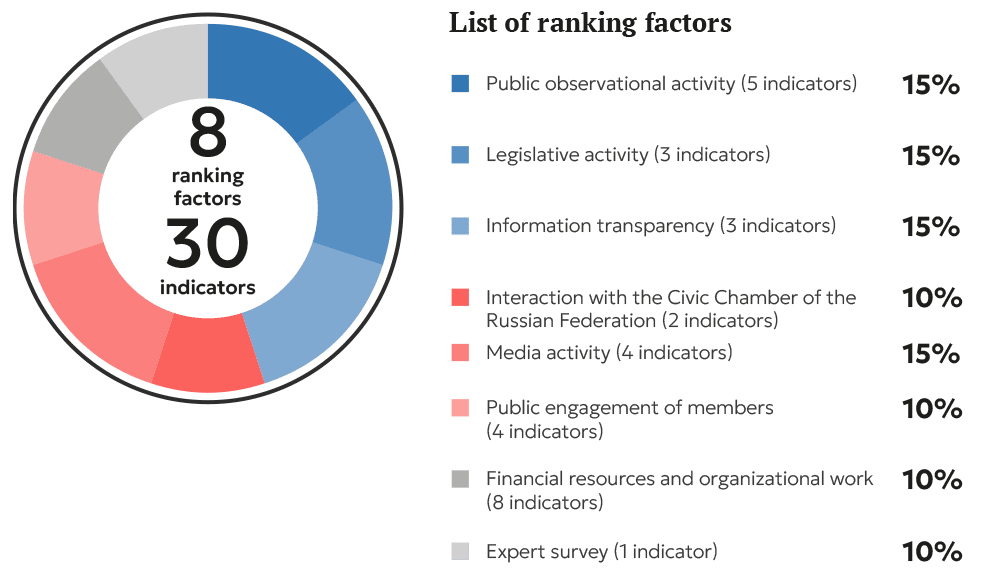
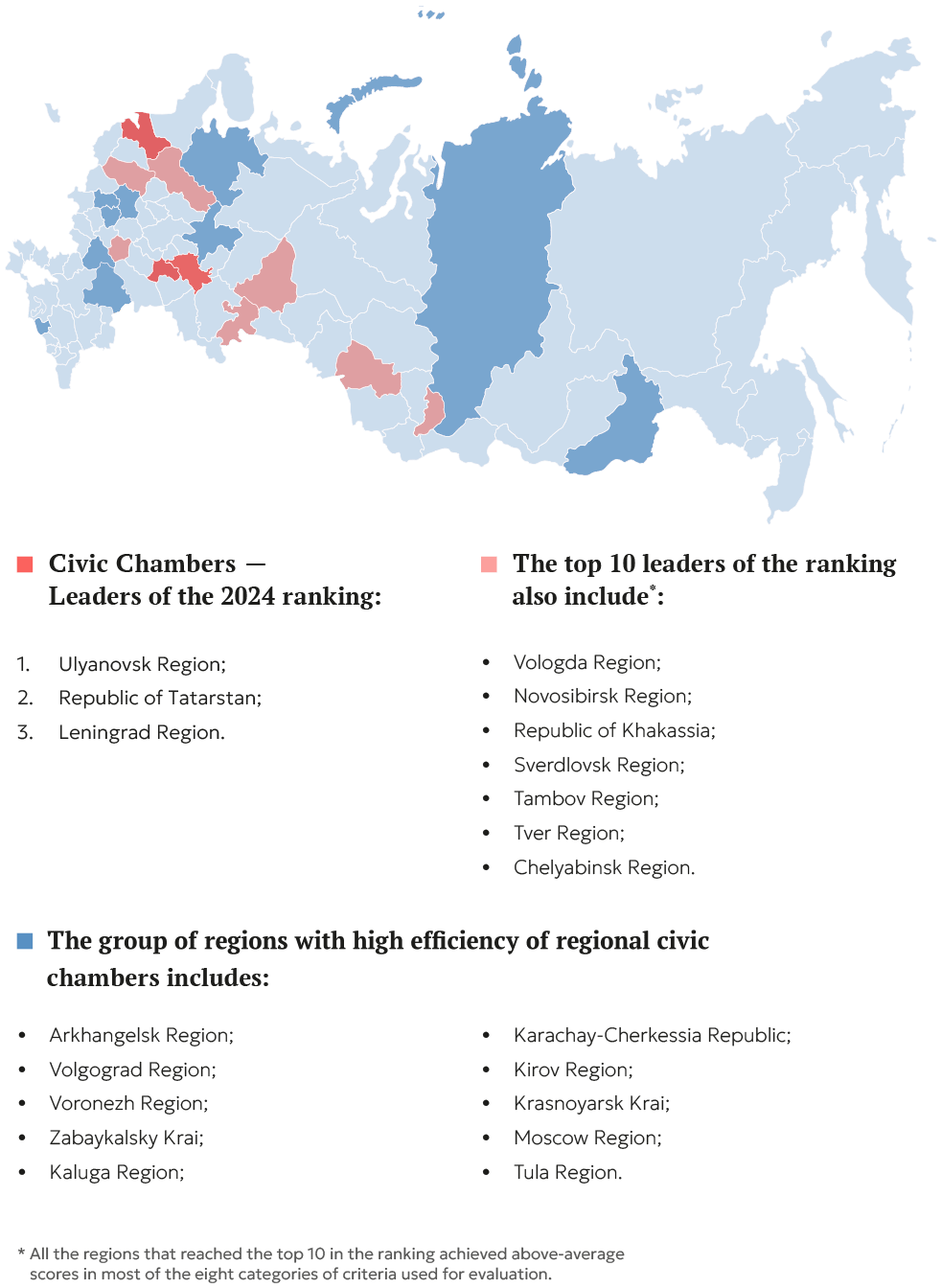
Ranking of Public Councils under the federal executive authorities
Since 2021, the Civic Chamber of the Russian Federation has been annually compiling a ranking of public councils affiliated with the federal executive authorities, which are overseen by the Government of the Russian Federation.
Over the past three years, the Civic Chamber of the Russian Federation, in collaboration with federal executive authorities and the expert community, has continuously refined the research model of the ranking. Today, it consists of seven objective ranking factors that reflect the main topics in the activities of public councils. In addition to these objective factors, the methodology includes data from a special expert survey (an eighth factor), the results of which are also considered when calculating the ranking indicators.
RANKING OF PUBLIC COUNCILS UNDER FEDERAL EXECUTIVE AUTHORITIES
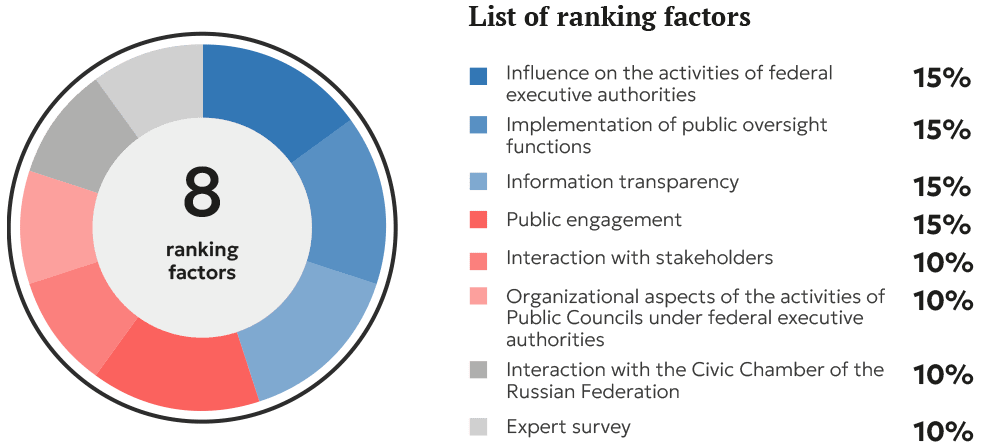
The ranking has had a significant positive impact on fostering constructive collaboration between the Civic Chamber of the Russian Federation and the public councils under the federal executive authorities in consistently improving their activities. This includes efforts to ensure that the needs and interests of the citizens of the Russian Federation are taken into account in the implementation of state policy in the relevant areas.
In 2024, the ranking of public councils demonstrated a number of positive changes in the activities of public councils under the federal executive authorities, which began to consider the ranking criteria in their operations: 59% of councils participated in the preparation of reports on control activities (compared to 45% the previous year); 84% reported that the head of the federal executive authority participated in council meetings (compared to 73% the previous year); and 10% have a documented procedure for the council’s work with legal regulations—with the regulations published on their website (compared to 8% the previous year).
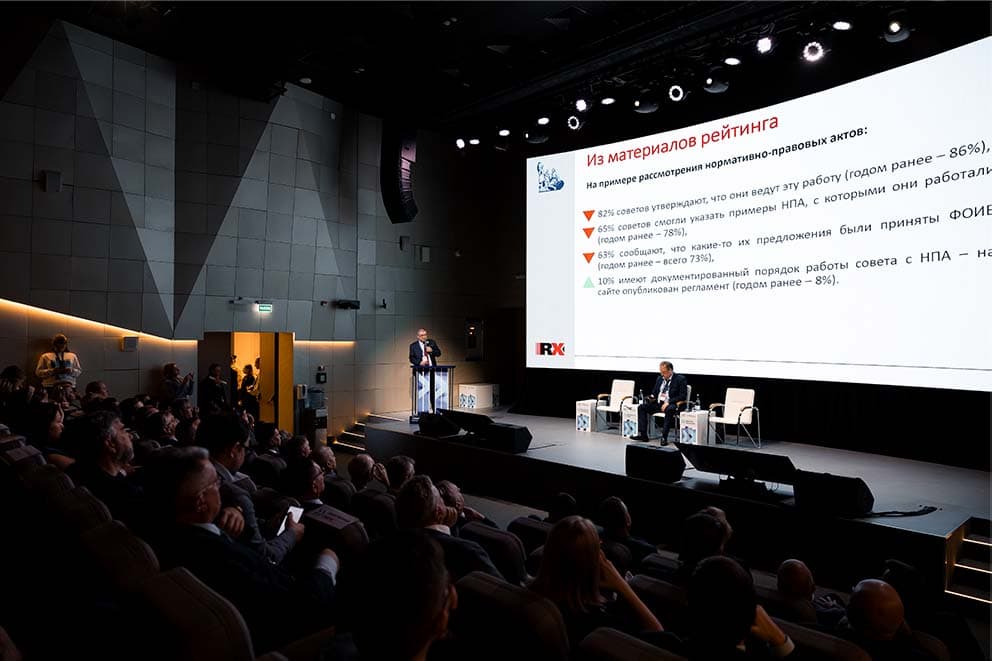
Presentation of the ranking of public councils under federal executive bodies at the final forum “Community” in Moscow on November 2, 2024. Press service of the Civic Chamber of the Russian Federation
Results of the 2024 ranking of public councils under federal executive authorities
Group A — Leaders:
-
Ministry of Education of the Russian Federation (Minprosveshcheniye of Russia);
-
Ministry of Agriculture of the Russian Federation (Minselkhoz of Russia);
-
Ministry of Construction and Housing and Communal Services of the Russian Federation (Minstroy of Russia);
-
Ministry of Transport of the Russian Federation (Mintrans of Russia);
-
Ministry of Labor and Social Protection of the Russian Federation (Mintrud of Russia);
-
Federal Service for State Registration, Cadastre, and Cartography (Rosreestr);
-
Federal Service for Supervision in Education and Science (Rosobrnadzor);
-
Federal Service for Supervision in Transport (Rostransnadzor);
-
Federal Agency for Youth Affairs (Rosmolodezh);
-
Federal Road Agency (Rosavtodor).
Subranking “Most dynamic”
Public councils that achieved maximum progress (improvement of 10 or more positions in the ranking used to compile the ranking):
-
Ministry of Transport of the Russian Federation (Mintrans of Russia);
-
Ministry of Finance of the Russian Federation (Minfin of Russia);
-
Federal Licensing Chamber;
-
Federal Service for Intellectual Property (Rospatent);
-
Federal Service for Supervision in the Sphere of Communication, Information Technology, and Mass Communications (Roskomnadzor);
-
Federal Agency for Maritime and River Transport (Rosmorrechflot);
-
Federal Agency for Management of State Property (Rosimuschestvo).
- 2024: The Main Topics in Russian Civil Society
- Civil Society and the State
- Institutions of civil society as catalysts for social change
- Collaboration and cooperation between society and the state
- Consolidated efforts of public institutions to support Special Military Operation veterans
- Public participation in achieving national development goals
- 2024 — the Year of the Family
- Nonprofit organizations: a means for partnership between the state and society
- Interaction of the institution of commissioners in the Russian Federation with civil society
- Social investments as a state contribution to developing the civic potential of the nation
- Institutions of civil society as catalysts for social change
- Citizen Observation
- Public Oversight
- Citizen Appeals
- Public Diplomacy
- Conclusion. Public Initiatives for a New Era